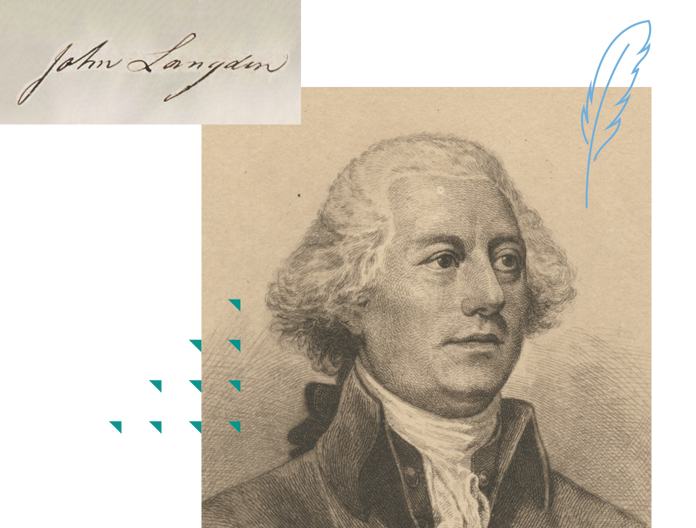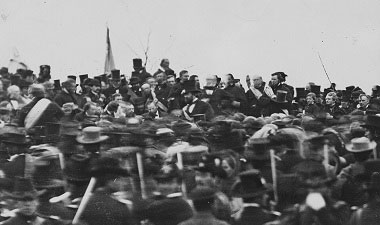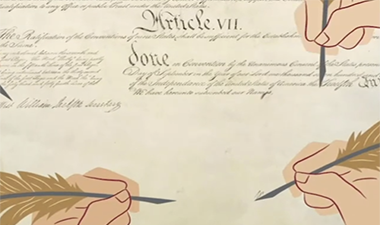Summary
John Langdon was a nationalist who supported the creation of a new, strong central government at the Constitutional Convention. He had to pay for his own way to the Convention.
John Langdon, Jr. | Signer of the Constitution
2:47
Biography
John Langdon, Jr was born in New Hampshire in 1741, the son of a wealthy farmer with a large family. His education was spotty: he attended a Portsmouth grammar school, but was then apprenticed as a clerk to a merchant and then spent time at sea. He finally became a merchant himself and was highly successful.
When the conflict between Britain and the colonies began, Langdon did not hesitate to side with his colonial countrymen. He sat on a New Hampshire nonimportation committee, and, in 1774, he joined in the seizure and confiscation of British military supplies from the Portsmouth fort. By 1775, he was the speaker of the New Hampshire Assembly and simultaneously a delegate to the Continental Congress. In 1776, he left the Congress to accept a colonelcy in the state militia. During the war, he built privateers to prey on British shipping and profited richly from this enterprise. In 1777, he financed a military attack on British General John Burgoyne and was in command of a militia unit when Burgoyne surrendered at Saratoga.
Langdon’s career in politics continued with his election in 1783 to the Confederation Congress. The next year, he was elected to the state Senate, and, by 1785, he was the chief executive of the state.
Langdon was then chosen to represent New Hampshire in the Constitutional convention. He had to pay both his and fellow delegate Nicholas Gilman’s expenses because the state was unable – or unwilling – to fund them. William Pierce’s sketch of Langdon was brief but favorable. Langdon was, Pierce said, “a Man of considerable fortune, possesses a liberal mind, and a good plain understanding.”
Langdon and Gilman did not arrive in Philadelphia until late July. Soon after being seated, Langdon expressed his frank admiration for the quality of his fellow delegates. Writing to a friend on August 1, he said that “the Importance of the Business, the Dignified Character of Many, who Compose the Convention, the Eloquence of Some and the Regularity of the whole gives a Ton [tone] to the proceedings which is extreamly pleasing.” Langdon joined in the debates, speaking at least 20 times. On the whole he was a nationalist, supporting the creation of a new, strong central government.
In 1788, Langdon was again serving as the state’s executive officer. He also attended the New Hampshire ratifying convention, supporting approval of the Constitution. His state then sent him to the first U.S. Senate, and he held that seat from 1789 until 1801.
During his time in the federal government his political attachment to the Federalist Party weakened, and his disapproval of the Jay Treaty began an opposition to the party’s policies. By 1801, he was committed to Jefferson’s Democratic-Republican Party. But when Jefferson offered him the Secretaryship of the Navy, Langdon declined. He preferred to focus on state politics. In 1805, he became Governor of the state once again and held office until 1811, with only a one year interruption.
In 1812, he refused the Republican Vice Presidential nomination, claiming old age and poor health. Instead, he retired and died in 1819 at the age of 78.








